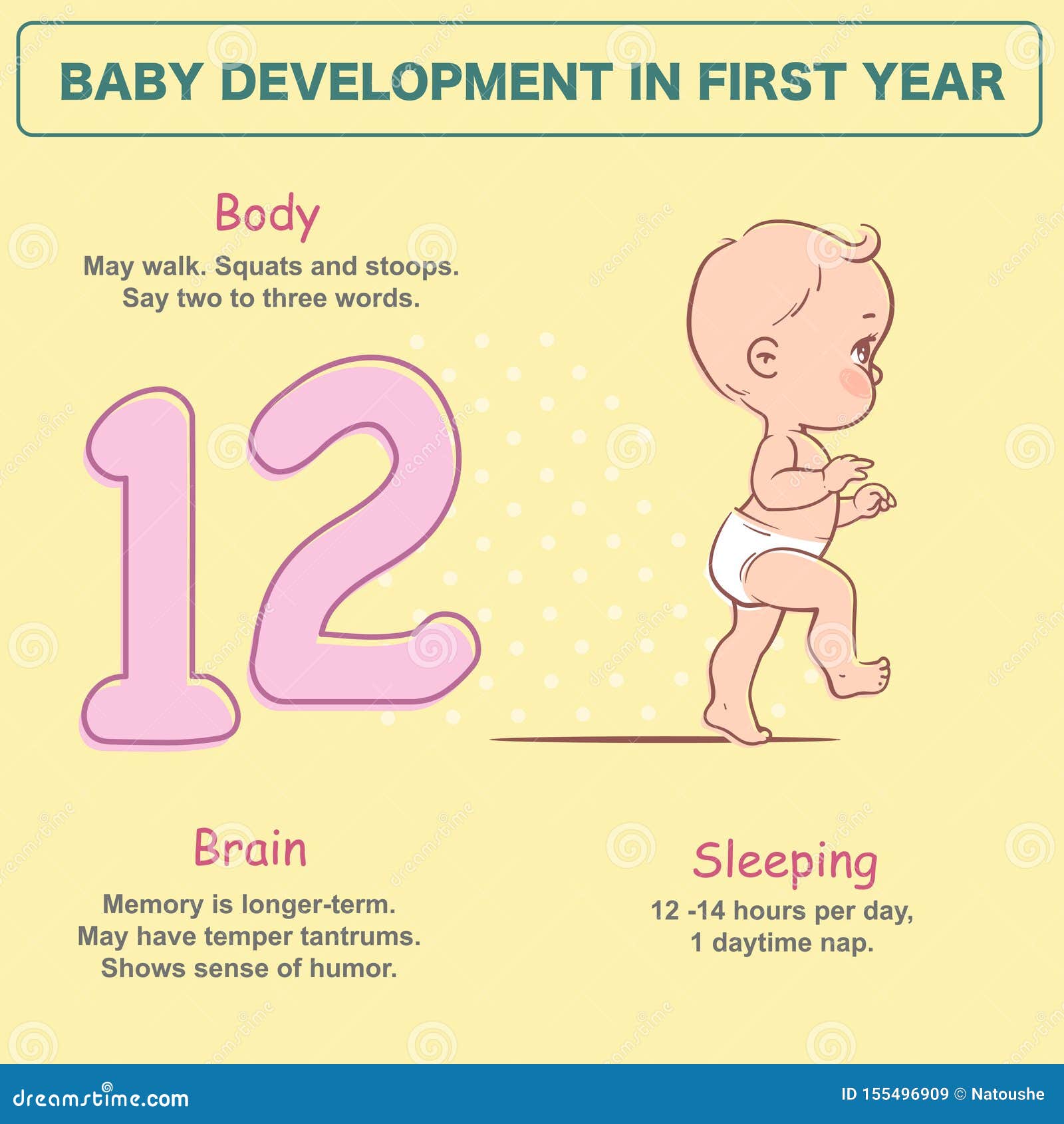 Source: bing.com
Source: bing.comWelcoming a newborn baby into the family is one of the most exciting and rewarding experiences that a parent can have. However, as a new parent, it can be overwhelming to navigate the different stages of your baby’s development, especially during the first 12 months. The first year of your baby’s life is full of incredible milestones and growth, from rolling over to crawling, to speaking their first words. In this article, we will explore the different stages of baby development during the first 12 months of life.
Table of Contents
First Month
During the first month of your baby’s life, they will be adjusting to their new environment and focusing on developing their senses. Your baby will spend most of their time sleeping and feeding, and they won’t be very active. However, you can start to engage with your baby by talking to them, cuddling them, and playing soothing music. Make sure to give your baby plenty of skin-to-skin contact to help them feel secure.
Second Month
By the second month, your baby will start to be more alert and interactive. They will be able to track objects with their eyes and respond to your voice. Your baby will also start to develop their first social smile, which is a huge milestone for them and for you as a parent. Make sure to continue engaging with your baby through talking, singing, and reading to help them develop their language comprehension.
Third Month
During the third month, your baby will continue to develop their social skills and physical abilities. They will start to hold their head up for longer periods of time and may even be able to push up onto their elbows during tummy time. Your baby will also start to coo and babble, which is their way of communicating with you. Make sure to respond to your baby’s vocalizations to encourage their language development.
Fourth Month
At four months old, your baby will start to become more active and mobile. They will be able to roll from their tummy to their back and vice versa. Your baby will also start to grab and hold onto objects, so make sure to provide safe and age-appropriate toys for them. Your baby’s sleep patterns may start to change during this time, so be prepared for some sleepless nights.
Fifth Month
During the fifth month, your baby’s movements will become more coordinated. They will start to sit up with support and may even be able to sit unassisted for a few seconds. Your baby will also start to develop their fine motor skills, such as grasping objects using their thumb and forefinger. Make sure to continue providing your baby with plenty of opportunities to explore new textures and objects.
Sixth Month
At six months old, your baby will be able to roll in both directions and may start to crawl or scoot backwards. Your baby’s first tooth may also start to emerge during this time, so be prepared for some drooling and fussiness. Make sure to introduce solid foods to your baby during this stage, following your pediatrician’s recommendations.
Seventh and Eighth Months
During the seventh and eighth months, your baby’s mobility will continue to improve. They may start to crawl or even pull themselves up to a standing position. Your baby’s communication skills will also continue to develop, and they may start to say their first words. Make sure to continue reading and talking to your baby to encourage their language development.
Ninth and Tenth Months
At nine and ten months old, your baby will become more independent and curious. They will start to explore their surroundings more actively, and they may even start to cruise along furniture or take their first steps. Your baby’s language skills will continue to develop, and they may start to understand simple commands and respond to their name.
Eleventh and Twelfth Months
During the eleventh and twelfth months, your baby will become more confident in their movements and abilities. They may start to take their first steps independently and become more skilled at using their hands and fingers. Your baby’s language skills will continue to develop, and they may start to use simple two-word phrases to communicate with you.
In conclusion, the first 12 months of your baby’s life are filled with incredible milestones and growth. As a parent, it is important to provide your baby with plenty of love, attention, and opportunities for exploration and learning. Remember that each baby develops at their own pace, and it is important to celebrate their individual achievements and milestones.
Frequently Asked Questions
Q: When should my baby start crawling?
A: Babies typically start crawling between six and ten months old. However, some babies may skip crawling altogether and go straight to walking.
Q: When should my baby start talking?
A: Most babies start saying their first words between nine and twelve months old. However, some babies may start talking earlier or later than this.
Q: How often should I be feeding my baby solid foods?
A: Your pediatrician will provide recommendations on when and how often to introduce solid foods to your baby. Generally, it is recommended to start with one small serving per day and gradually increase as your baby becomes more accustomed to solid foods.
Q: When should I start taking my baby to the dentist?
A: It is recommended to take your baby to the dentist for their first checkup by their first birthday or within six months of their first tooth emerging.
Q: How much should my baby be sleeping during the first year?
A: Newborn babies typically sleep for 16-17 hours per day, gradually decreasing to 12-14 hours by the end of their first year. However, each baby’s sleep needs may vary.
